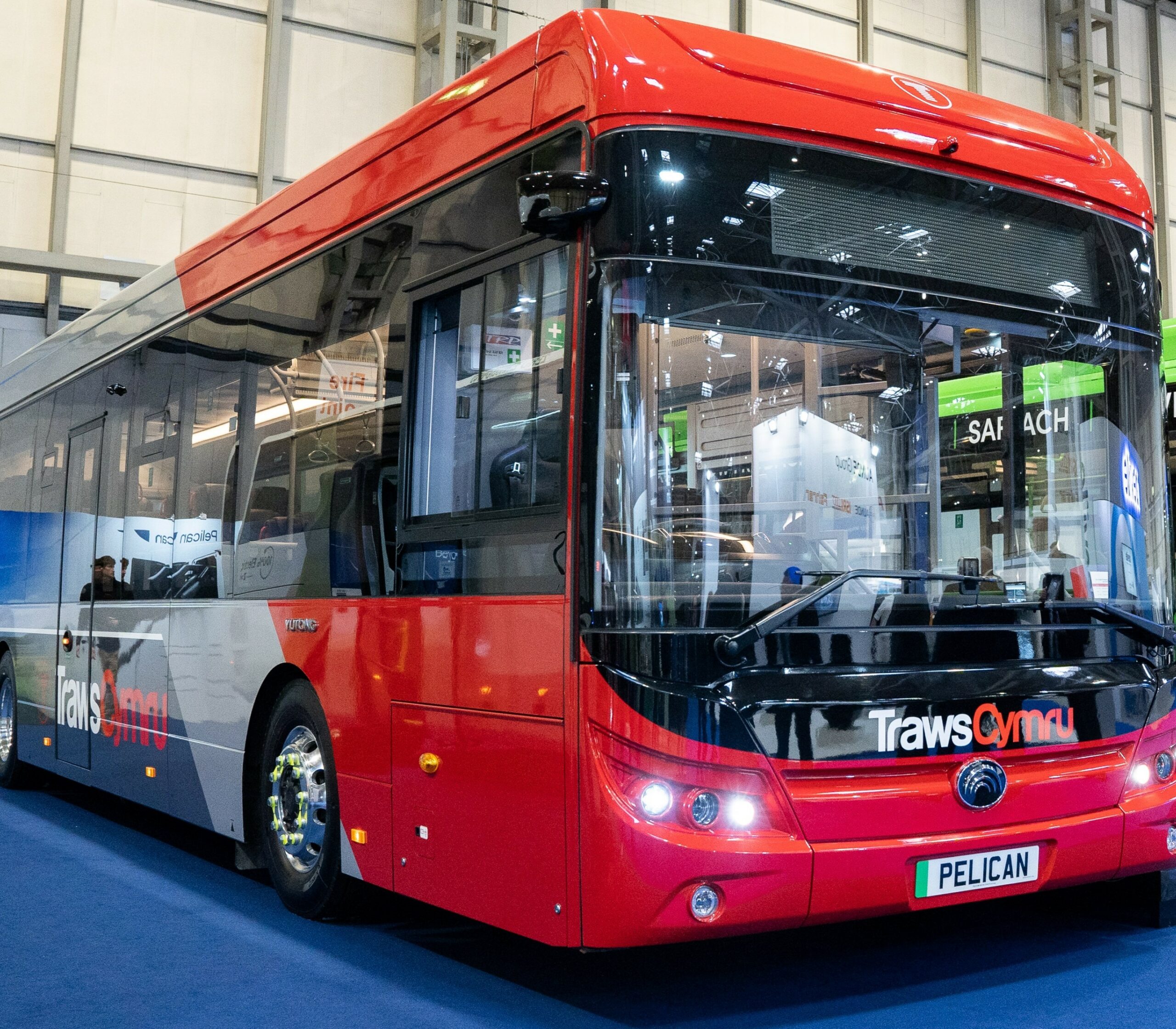Strategy
 Wales was the first country to declare a climate emergency in 2019 and the devolved government has set strong and clear targets for its response, including a complete transition to a zero-emissions bus fleet by 2035. The big challenge was how to make the journey to decarbonisation with a fragmented network of over 80 operators, from major entities to small, local companies, running a combined fleet of over 1800 buses which are some of the oldest in the UK, across 900 routes and with limited capacity to invest in new vehicles.
Wales was the first country to declare a climate emergency in 2019 and the devolved government has set strong and clear targets for its response, including a complete transition to a zero-emissions bus fleet by 2035. The big challenge was how to make the journey to decarbonisation with a fragmented network of over 80 operators, from major entities to small, local companies, running a combined fleet of over 1800 buses which are some of the oldest in the UK, across 900 routes and with limited capacity to invest in new vehicles.
Currently, the cost of transitioning from diesel to zero-emission buses is prohibitively expensive for operators. In England, bus operators are funded to buy electric vehicles and upgrade depots with charging capability.
The Welsh Government and Arup believed an alternative funding and delivery model could achieve an effective transition at pace. Arup’s experience working with Australia’s Transport for New South Wales provided a powerful insight into Sydney’s bus system which could be relevant to Wales’ situation, namely government ownership and leasing of vehicles.
To test this, Arup led stakeholder workshops to explore network design; fleet operations; infrastructure; funding and financing; technology choices; supply chain; and operating models. The broad scope was matched by the diversity of stakeholders – from the bus sector (both small and national operators), energy, technology, economic development, manufacturing, academia and finance.
Arup provided the Welsh Government with a clear and radical roadmap for bus fleet decarbonisation. Arup’s domain expertise played an invaluable part, taking discussions beyond the here-and-now to help visualise the bus networks and technology of tomorrow, and drawing on their experience from other parts of the world in transitioning fleets towards sustainability.
To secure funding, economic development opportunities for Wales became one of the must-haves for evaluating delivery models, alongside criteria such as air quality improvements, increased patronage, network resilience, affordability and value for money. This understanding led to a fundamental reconsideration of the strategic objective.
Additional public value from investment was ‘value stacked’ with the benefits from a new, clean and green fleet, alongside further work by the Welsh Government’s economic development team to map Welsh supply chains. The scheme’s carbon costs and credits were evaluated through innovative economic analysis which strengthened the case for decarbonisation and investment.
This model allows Transport for Wales and the Welsh Government maximum influence over contracts, to provide wider, sustainable, economic development benefit in Wales’ transport and energy sectors; less financial burden on smaller operators, greater support of a resilient bus sector, and greater efficiencies from centralised capabilities and bulk purchasing, which could reduce total cost of ownership.
Arup’s strategy has secured a commitment from the Welsh Government to invest over £100m in new vehicles and charging infrastructure over the next three years. Wales’ bus network will get a fleet of quiet, clean, comfortable electric vehicles and a bigger share of the travelling public. But it will get much more besides, in technological leadership, new business and new jobs.
View the Arup profile in the MCA Members Directory.

